Gretchen Miller | Homeground
Dr Gretchen Miller has been making audio documentaries and explorations of the human relationship with the natural world for over 20 years. This is a retrospective, ranging in location from the Tanami Desert to Cooper Creek, from the dreamscapes of climate anxiety and hope, to the intimacy of relationships with trees, and the way birds speak with us. Gretchen works with academics and activists, experts and so-called ‘ordinary’ people, finding grace and beauty in their gentle, custodial care, their living, and their passing. She implies, but never bludgeons, the importance of the choices we make and the actions we take as individuals, communities, and democracies. Gretchen continues to work as a podcast consultant towards communicating the most critical issues of our time: our environmental relationships, and climate crisis. Her doctoral research (UNSW) was in the contribution of podcasting to the field of environmental communication, and the essential elements required for custodial...
Episodes
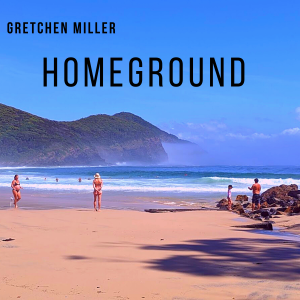
Sunday Mar 06, 2022
Sunday Mar 06, 2022
Passion, despair, violence, romance, mystery, revelation — as twilight falls in the city our emotions and our imaginations are heightened. Powerful unseen currents run through the city — your city, a distant city, an imagined city. We're swept along into the crucible and what happens next holds our memories captive.
The City at night is an evocative, mythic, magical place. A perfect place to make true tales tall–and tall tales true. When we called for your stories, your poetry, your images, your sounds for the City Nights project, we had no idea of the complexity – and the simplicity – and the sheer generosity of the uploads we would receive. The City Nights project on Pool and 360 was devised and produced by Gretchen Miller.
Texts adaptation, music composition, sound design, slideshow design - Gretchen Miller. Sound and vision engineering - Russell Stapleton. Music recording - Phil McKellar. Additional recordings - Judy Rapley. Stories include: Creatures of the Night by Alison Gibson. Street of the Candlesticks by Rijn Collins. Ice skating by Felicity Castagna. From Freo by Kevin Gillam. Gabrielle/Ophelia by Lindy Collins. The Hands by Les Wicks. Miss Pardy Hears a Noise on the Roof by Jacqui Dent. Friday Night from by Gabrielle Brydon. Unremarkable by Amelia Schmitz.
January 2011.
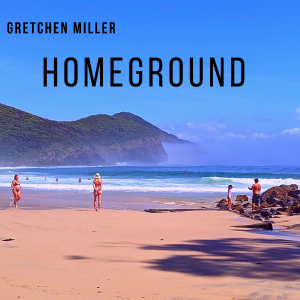
Sunday Mar 06, 2022
Sunday Mar 06, 2022
There is a region of forest in South East Asia that remains more or less intact. Perversely it's been protected from logging, poaching and development by seven decades of civil conflict. The local Karen people live in refugee camps just inside Thailand but also remain in their thousands in the Myanmar forest living as they have always done while fighting for an independent homeland. A recent peace deal means that for the first time it may be possible for logging to begin, dams to be built, open cast gold mining to expand, roads and a deep water port to be built. The Karen are trying to create a vast ‘peace park’ to preserve their astonishing natural habitat from these same forces that have destroyed so much forest in the previous countries we have visited in this four-part series. ABC RN Earshot and the BBC World Service head into the Myanmar forest to a training camp for Karen forest rangers who will police the forest if such a park can be created. This is a place alive with all of the flora and fauna that have usually disappeared. It is so noisy and vibrant with life that a Silent Forest is only a bad dream. Is this the final moment before a storm of exploitation and destruction makes that bad dream a reality? Or can something different and new be created by the Karen? After 68 years of civil war everything hangs in the balance. We talk with Karen villagers, forest rangers and the people helping the Karen create their policy for managing the forest, and most important of all we walk beneath the canopy and hear at last, the way the forest should sound. Guests: Clare Campbell, director, Wildlife Asia. Paul Sein Twa, Director of KESAN (Karen Environmental and Social Action Network). Saw Mabu Jaratpratprueang, Land and forest resource management coordinator, KESAN. Sulak Sivaraksa, Siamese intellectual and founder of the International Network of Engaged Buddhists. Sawbusay, SawGaysay, Sawtahtoo - elders of the village of Paw Ka Doh. Sound engineer: Judy Rapley. October 2017.
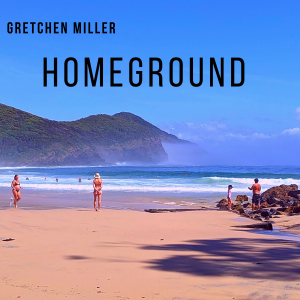
Sunday Mar 06, 2022
Sunday Mar 06, 2022
The retelling of a certain myth, a myth without a specific time or place, is also the vehicle for an exploration of the ancient sport, and art, of archery. In The Arrow and the Bow we find ourselves in a forest, watching as a man and his dogs go hunting. But we are also watching a woman, who is floating in a pool of water. What happens when he raises his bow to shoot a deer and instead finds himself firing at a goddess?We also hear from an archery teacher, women archers from a historical reenactment society, and two philosophers discussing the Zen of archery, and Zeno’s arrow. Viola Natasha Rumiz. Sound engineer David Bates. Written and composed by Gretchen Miller. First broadcast April 2000
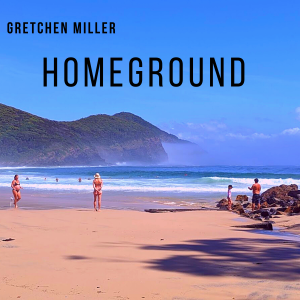
Sunday Mar 06, 2022
Sunday Mar 06, 2022
At 1,200 kilometres from tip to toe, the Great Barrier Reef looms large in the Australian imagination and sense of national identity and pride. For now, as a world heritage-listed area, it's narrowly avoided being listed as 'endangered', by UNESCO. But with fifty percent of its coral cover dead, it remains on a knife edge of survival. As a marker of the severity of what’s coming to us, the eyes of the world remain on it.August 2015.
The Reef is a natural marvel and a multibillion dollar tourism resource—but it’s also a shipping lane, the site of several coal ports, a giant funnel for farming runoff, and a cyclone-prone area. This century it's seen five category 5 cyclones pass over it, compared to none the century before.
Now that previous major threats like pollution runoff and overdevelopment are eclipsed by climate change and extreme weather, can our efforts to improve our footprint there have any effect at all?
We head to far north Queensland to join a DFAT gathering of concerned reef experts from around the world, as they share their stories and consider the environmental impacts on both landscape and human psychology.
Guests: Dr Paul Marshall, Marine biologist, adjunct associate professor with the Centre for Biodiversity and Conservation Science at the University of Queensland and Director of Reef Ecologic. Dr Adam Smith, Marine biologist, freediver, and director of Reef Ecologic. Samantha Kwan, Marine Conservation Officer for the Ministry of Natural Resources and Environment in Samoa. Andrea Donaldson
Manager, Ecosystems Management Branch in the National Environment and Planning Agency (NEPA) in the Ministry of Water, Land, Environment and Climate Change, Jamaica. Christine O'Sullivan Lecturer in Environmental Studies at the University of Technology, Jamaica (UTech). Michelle Kalamandeen
Protected Areas Coordinator at the Guyana Marine Turtle Conservation Society. Roland Baldeo Former fisheries officer, coordinator of the Marine Protected Area program in Grenada. Nicole Harman Great Barrier Reef regions marine animal strandings coordinator for the Queensland Parks and Wildlife Service. Scott Firth
Marine biologist, crown of thorns control program, Association for Marine Tourism Operators
Sound engineer: Judy Rapley.
August 2015.
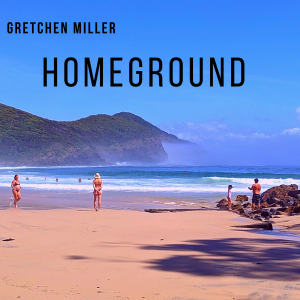
Sunday Mar 06, 2022
Sunday Mar 06, 2022
Poet and photographer John Bennett gets up most mornings well before dawn, and takes himself down to his local estuary. This time, about half an hour before light, reveals exquisite colours, with every morning different from the last. He calls this time 'Eos' - Eos being the Greek goddess who opened the gates for the sun, Helios, to ride his chariot through and bring daybreak. John says that rising in time to see eos is an opportunity to reacquaint ourselves with the traditional elements of earth, water, air and light. Before we start worrying about our finances, work, family. Before we pick up technology and connect ourselves with the digital world, eos allows us to just 'be', in the natural world, much as our ancestors were.
In this conversation with Gretchen Miller, John walks us through his local forest reserve, Jagun, through which a creek runs, before it reaches the sea.
They talk of the birds, trees and landscape which his poetry obsessively documents, about how to be a 'decent man', and how to pay attention when you're chronically distracted by the many fascinating things the world can bring.
Music in this program was Hodie Response 1, by Nick Tsiavos, who likes to play at the other end of the day - after dusk and into the night.
Sound Engineer: Russell Stapleton.
February 2016
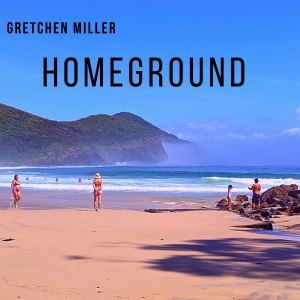
Sunday Mar 06, 2022
Sunday Mar 06, 2022
Finding hope and taking positive action can be a challenging thing to do, when it comes to climate change. In this two part series we're looking at how climate and environmental scientists, studying everything from the Great Barrier Reef to the impact of heatwaves, manage the ‘burden of knowledge’. How do they emotionally experience the science around global warming? In part 2 we ask where scientists, writers, philosophers and science educators find their optimism, and ways in which to take action - even if it’s as a way to counter their despair. And we visit a very unusual dinner party, where, taking a leaf out of the plastic manufacturer Tupperware's book, a group called Climate for Change hopes to spread the conversation amongst millions of Australians.
Guests: Katerina Gaita, Climate educator and director of Climate for Change. Dr Glenn Albrecht, Philosopher. Professor John 'Charlie' Veron Marine biologist, coral scientist, former Chief Scientist of the Australian Institute of Marine Science. Dr Sara Arthur, Environmental Consultant, specialising in waste management and contaminated land. James Bradley, author. Professor Ove Hoegh-Guldberg, biologist and climate scientist specialising in coral reefs, in particular bleaching due to global warming and climate change. Dr Susie Burke, Senior psychologist at the Public Interest Team at the Australian Psychological Society.
November 2016
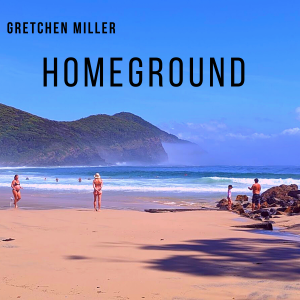
Sunday Mar 06, 2022
Sunday Mar 06, 2022
Scientists let us know all the facts and figures about climate change. They know just how quickly the icebergs are melting, and almost to the day when the Great Barrier Reef will be dead. If you don't fully grasp the wide-ranging and complex facts, it can feel like 'too much'. And though humans are excellent at responding quickly to immediate threats, consequences that will occur a few years down the track can be harder to come to grips with. Many of us turn away, with more immediate concerns taking priority. But some people can't turn away, and this two-part series examines the personal impact on those on the frontline of climate change. We ask scientists young and old, plus activists, philosophers and psychologists, 'how do you feel, about global warming?' Their responses will move you.
Guests
Professor Ove Hoegh-Guldberg, a biologist and climate scientist specialising in coral reefs, in particular bleaching due to global warming and climate change. Professor John 'Charlie' Veron: Marine biologist, coral scientist, former Chief Scientist of the Australian Institute of Marine Science. Dr Sara Arthur
Environmental Consultant, specialising in waste management and contaminated land. Dr Susie Burke, Senior psychologist at the Public Interest Team at the Australian Psychological Society. Dr Glenn Albrecht, Philosopher, Dr Andrew King. Dr Sarah Perkins-Kirkpatrick, Senior research associate and 2014 DECRA awardee in the Climate Change Research Centre at UNSW.
November 2016
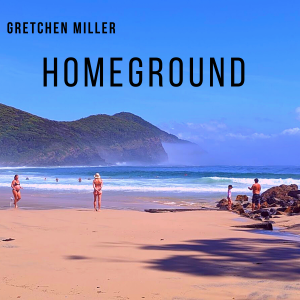
Sunday Mar 06, 2022
Sunday Mar 06, 2022
While Australian flora and fauna were illustrated and painted from the very start of the colony, this decorative art is the first time they were celebrated by Europeans as matter of Australian pride - preceding the famous Heidelberg school by 50 years.
And this was the first time tools of the trade had been represented in jewellery, as far as we know. Here are the most ordinary things: the tin bucket, the iron spade, the handle of a winch, made in miniature out of one of the most desirable substances on the planet.
And an exhibition at Ballarat's Museum of Australian Democracy at Eureka brings many of these pieces, and their stories, to light.
Featuring Cash Brown, then curator of the Museum of Australian Democracy.
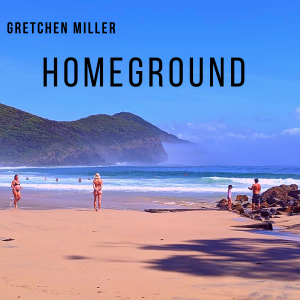
Saturday Mar 05, 2022
Saturday Mar 05, 2022
Follow a duffel bag of poetry, carried by cargo ship up the coast of Australia, to Thursday Island ... Don't look inside. And when you finally set foot on the sand, open the bag and find... Sea Things.
The ocean has long been a subject for poetry and poetic musings. In Sea Things we journey up the coast in the company of two duffel bags, transported by ship and collecting poems for the Red Room Company's project.
On the journey all sorts of people are met - some write poetry on paper and others just live it but all are tied to the sea.
Guests: Brett Thomas, Ships master, Temple Bay, Lockhardt River, far north Queensland; Kerry Ashwin, poet; Delma Bon, Crayfisherman, Thursday Island; Marty Bugg, First officer, Trinity Bay MV, Sea Swift company; The children of Tagai state college and Our Lady of the Sacred Heart School; Graeme Miles; Poet and lecturer in the school of history and classics; Johanna Featherstone, Red Room Company director; Kelly Osmond, Ships officer and former barramundi fisher; Dave Jordan, Former Royal Australian Navy commander; Alan Gould, Poet and writer; Frank David, Thursday Island cultural officer.
Sound engineer: Russell Stapleton.
